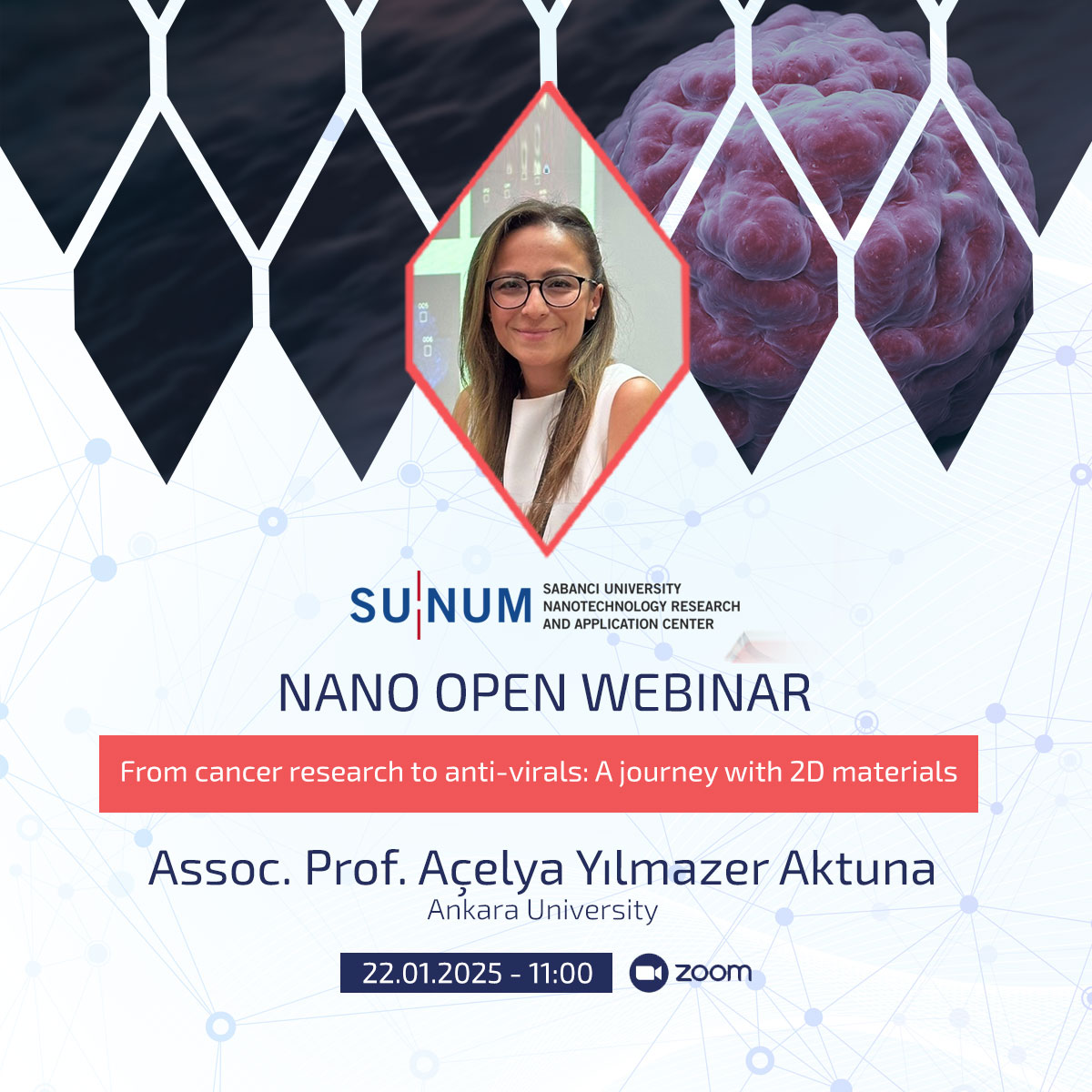-

- About Us
- Research
- People
- Infrastructure
- Projects
- Partnerships
- Our Platforms
- Publications
- Training / Event
- mySU
- Online Reservation
- sunum@sabanciuniv.edu
- SUNUM e-Store
- 360° SUNUM
- Intranet

Assoc. Prof. Açelya Yılmazer Aktuna, from Ankara University, will be the guest at the Nano Open Webinar on Wednesday, January 22, 2025 between 11.00-12.00 at Zoom.
Since their discovery, MXenes and 2D materials have attracted a lot of attention in biomedical applications, especially in cancer research. Thanks to their extraordinary properties, we have been using them to diagnose cancer, deliver chemotherapeutics or exert anti-tumor activities through various different mechanisms. The COVID-19 pandemic has shown the success of nanotechnology in combating with viruses in different applications including the development of vaccines or personal protective equipment (PPE). Among these nanotechnology-based systems, MXenes have been shown to efficiently favor anti-viral activity and maintain a safer environment to protect people against pathogens. Finally, Açelya Yılmazer Aktuna, will also talk about importance of harnessing omic biology to propel nanotherapeutics forward, for combating cancer or global infectious diseases in the future.
To register for the Nano Open Webinar, which will be held on Zoom on January 22, 2025, at 11:00: otolab.sabanciuniv.edu
About Assoc. Prof. Açelya Yılmazer Aktuna
Assoc. Prof. Açelya Yılmazer Aktuna is working in the Biomedical Engineering Department of Ankara University as an Associate Professor and has been the vice director of the Stem Cell Institute of the same university since 2016.In 2008, she completed her MSc degree in Cancer Immunotherapy at the University of Nottingham. She completed her Ph.D. in 2012 at University College London under the supervision of Prof. Kostas Kostarelos in the Nanomedicine Laboratory. During her PhD, she focused on artificial envelopment of adenoviral vectors and how this technology affects the in vitro and in vivo behaviour of viral particles. She also had opportunity to work with a variety of delivery vectors including carbon nanomaterials. She continued her postdoctoral study in the same lab and for the first time in literature, she showed that direct in vivo reprogramming towards pluripotency in mouse liver tissue is possible via non-viral overexpression of defined factors. This provided a proof-of-evidence of in vivo reprogramming of adult somatic cells towards a pluripotent state with high efficiency and fast kinetics. In July 2013, she moved back to Turkey where she established her own research group in Ankara University. She was awarded the Best Young Investigator award by the Turkish Society of Medical Biology and Genetics in 2013, the TÜBA-GEBİP Award in 2018, and the Scientific Encouragement Award by the Ankara University in 2019.
